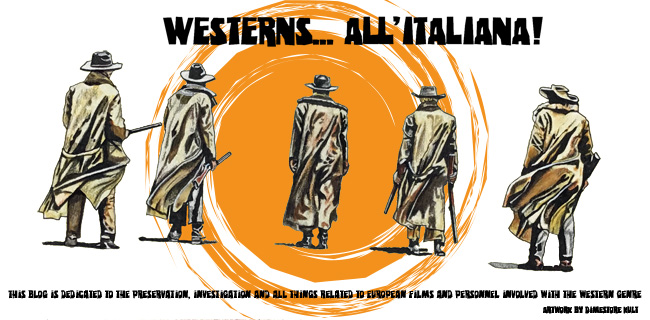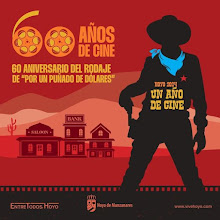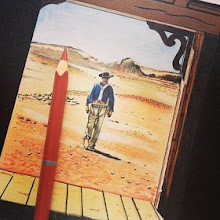Luis Enriquez Bacalov was born in Buenos Aires, Argentina
on Augsut 30, 1933 to a family of Bulgarian-Jewish origin, but even though he
identifies as a Jew, he does not practice Judaism. His paternal grandparents
were Banat Bulgarians who emigrated to Argentina. His film credits include
westerns such as “Django”, “A Bullet for the General”, and “The Grand Duel”,
and Italian crime films such as “Caliber 9”, “Il Boss” and “Mister Scarface”.
He also scored Fellini's “City of Women” in 1980.
Bacalov has been nominated twice for the Academy Award
for Original Score—music adaptation or treatment— in 1967 for Pasolini's “The
Gospel According to St. Matthew”, and winning the award for “Il Postino” in
1996.
In the early 1970s, he collaborated with Italian
progressive rock bands such as New Trolls, on their 1971 album, Concerto grosso
per i New Trolls, Osanna, on the band's second album, Preludio Tema Variazioni
e Canzona released in 1972, and Il Rovescio della Medaglia for the 1973 release
of their third album, Contaminazione.
Bacalov has also composed significant works for chorus
and orchestra, including his Misa Tango (1997), a work setting a
Spanish-language adaptation of the classic liturgical Mass to the tango rhythms
of his native Argentina. The standard Mass text has been significantly
truncated in accordance with Bacalov's desire that the work appeal to those of
all Abrahamic faiths: Christians, Muslims and Jews. All references to Christ — except
for the Lamb of God (Latin: Agnus Dei) — have been deleted. Credo, the third
and longest text part of a sung Mass, has been reduced to most of its first
strophe and part of the second one: "Credo in unum Deum, ... omnipotentem,
factorem cœli et terrae." (" I believe in one God, ... Almighty,
Maker of heaven and earth") plus "Amen" at the end. Misa Tango
debuted in Rome with Plácido Domingo as solo tenor in 2000 and was later
recorded by Deutsche Grammophon with Plácido Domingo (tenor), Ana María Martínez
(mezzo-soprano) and Héctor Ulises Passarella (bandoneón).
Bacalov composed Cantones de Nuestro Tiempos (Psalms for
our Times: The Cambridge Psalms) (2006), a commissioned work with text from the
Psalms of David for baritone and soprano soloists, orchestra and chorus, which
had its world premiere at Sanders Theatre in Cambridge, Massachusetts, in
spring 2006 by the Cambridge Community Chorus (William E. Thomas, Music
Director). This followed the 19 May 2002 U.S. premiere performance of
"Misa Tango" also at Harvard University's Sanders Theatre (William E.
Thomas, Music Director).
Two of his songs, "The Grand Duel (Parte
Prima)" and "Summertime Killer", were used in Quentin
Tarantino's film Kill Bill (2003). Tarantino also used three Bacalov songs from
the Spaghetti western era in his 2012 movie Django Unchained:
"Django" and "La Corsa (2nd Version)" originally from
Django (1966), and "Lo Chiamavano King" from His Name Was King.
Bacalov was the first to write a triple-concerto for
bandoneón, piano, soprano and symphony orchestra: Tango Music with Symphonic
Proportions.
Since 2005 he has been the principal director of
Orchestra della Magna Grecia in Taranto, southern Italy.
BACALOV, Luis
(Luis Enríquez Bacalov) [8/30/1933, San Martín, Buenos Aires,
Argentina –
] –
composer, musician (piano), funded ‘Luis Bacalov and Orchestra’.
A Bullet for the General* - 1966
Song: “Ya me
voy” sung by Ramon Mereles
Halleluja for Django* - 1966
Halleluja for Django* - 1966
Django* - 1966
Song: “Django”
sung by Rocky Roberts”
Song: “Django”
sung by Robert Fia
Sugar Colt - 1967
Death on High Mountain – 1969 [as Luis Enríquez]
Chapaqua’s Gold* - 1970
The Price of Power* – 1970
His Name was King* – 1971
Song: “His
Name was King” sung by Ann Collin
In the Name of the Father* – 1969
Song: “I
quattro del pater noster” sung by ?
The Grand Duel* – 1972 (co)
It Can be Done… Amigo!* – 1972 (co)
Song: “Can Be
Done” sung by Rocky Roberts
The Great Treasure Hunt – 1972 [as L.E. Bacalov]
Hallelujah to Vera Cruz – 1973
Song: “Blue
Eggs and Ham” sung by ?
[*available on CD]










No comments:
Post a Comment